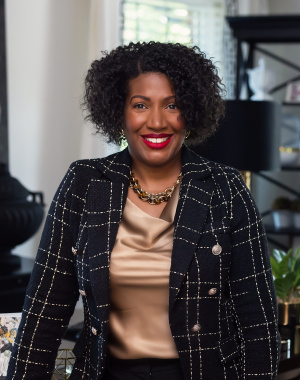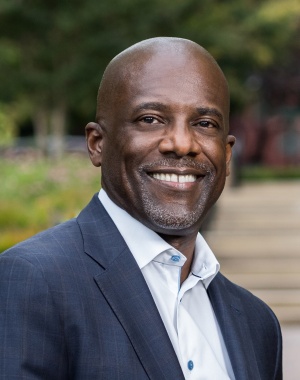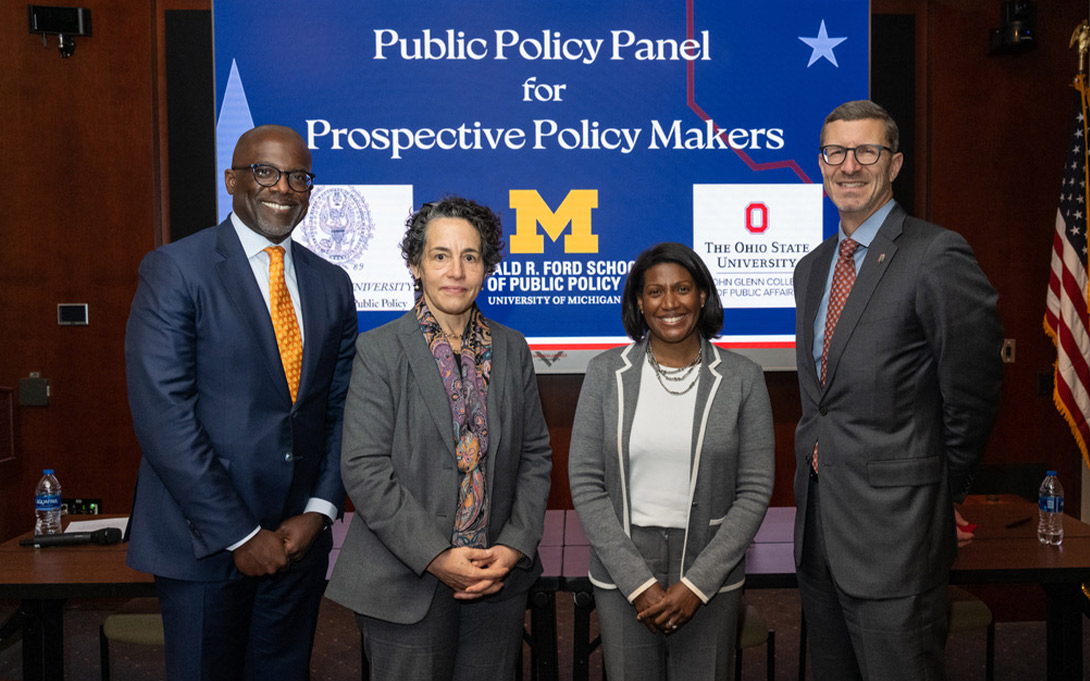
In an event on December 5, 2022, Ford School interim dean Celeste Watkins-Hayes told a group of Capitol Hill staffers and other DC professionals that a public policy education can lead to community impact.
“I'm a firm believer in the idea that our individual experiences are grounded in institutions and structures, and really understanding how those things are related and how we can intervene to help make people's lives better is really at the heart of what a policy school does,” she said.
Watkins-Hayes was joined by Trevor Brown, dean of The Ohio State University Glenn College of Public Affairs, Maria Cancian, dean of the McCourt School of Public Policy at Georgetown University, along with Ford School Towsley Policymaker in Residence Hardy Vieux (MPP/JD ’97) who moderated the discussion.
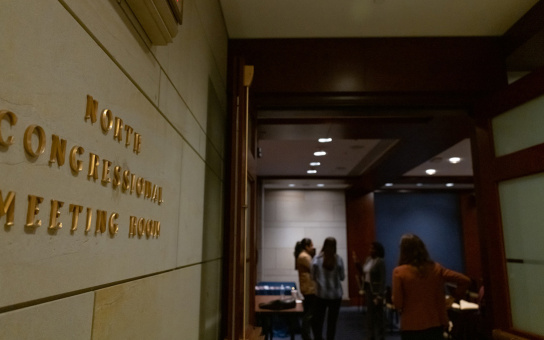
The event, titled “Public policy for good: Building a just and inclusive society,” was co-sponsored by Congressional Black Caucus (CBC) chair U.S. Representative Joyce Beatty and the Ford School, and was open to Hill staffers, CBC fellows, and other prospective graduate students of the three participating schools.
Each of the three deans provided advice and highlighted considerations for prospective students as they think about applying to a policy school.
Commenting on the importance of diversity, equity, and inclusion (DEI) for public policy professionals, Watkins-Hayes said “Whether you are implementing policy on the front lines or in the middle management of an organization, or if you're in a leadership position, you are going to have to think about how you implement public policy in an increasingly diverse society. There has been increased attention in the field around how you bake that into the curriculum.”
Watkins-Hayes is the founding director of the Ford School’s Center for Racial Justice, where part of its charge is working with professors to think through how to integrate DEI into their courses. For example, she said, “If we're talking about housing policy, it's not enough just to talk about a particular public policy and to look at the cost-benefit analysis and the financing, we also have to take a step back and recognize the historical trajectory that got us to where we are. So we have been infusing conversations around history, and thinking about how the social sciences can play an illuminating role in training students to understand the historical underpinnings and the contemporary manifestations of inequality.”
The Ford School has also been focusing on its identity as an institution—who is in the classroom, teaching students, and on staff.
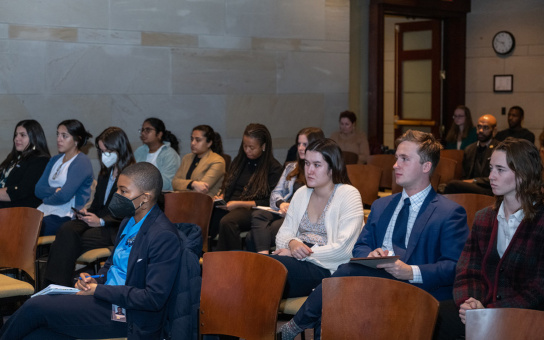
“We are really proud of the work that we’re doing at a curriculum level and our events. But also talking about who we are as a school, and who's instructing the students to introduce different experiences for views, perspectives, life experiences into the policy conversation, and to have people who bring different tools to bear in rigorous empirically driven and values-based policy conversations.”
She also discussed the Ford School’s Leadership Initiative. “[At the Ford School] you can marry leadership skills with conversations on values and ethics, you can marry that with quantitative analysis skills, and with the substance of policy area of choice, to really put together a package of really excellent training.”
Dean Cancian also spoke to the importance of being able to work across differences. “At McCourt we call them power skills….one of our core aspirations is to be inclusive, across race and ethnicity, and also across other forms of lived experience. So one of the things we try really hard to do is for students to learn from people who have different intellectual and ideological perspectives.”
Dean Brown emphasized that in addition to curricular and co-curricular aspects of a program, prospective students should consider life after graduation. “Not just the job, but what the network of graduates look like….and the network of professionals that are there for you afterwards. We're proud to say that one of the largest concentrations of our alums is right here in Washington, DC. That's empowering, because that means when you finish this degree, there are people to connect with who will open some doors, continue enriching conversations, and help advance your career.
Ultimately, as Dean Cancian said, “You can’t go wrong with any of these schools. You will have lots of good choices….there is a path to great success at any one of these schools.”
Interested prospective students should request more information about Ford School degree programs.
